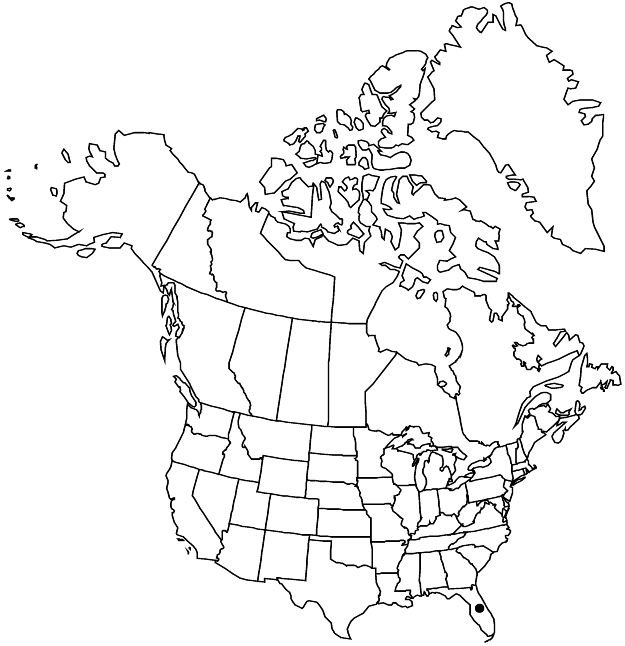Paronychia chartacea var. minima
Sida 21: 754. 2004.
EndemicConservation concern
Basionym: Paronychia chartacea subsp. minima L. C. Anderson Sida 14: 436, fig. 1. 1991
Treatment appears in FNA Volume 5. Treatment on page 35.
Plants annual; caudex (stem base) (0.4–)0.7–1(–1.5) mm. Stems purple-spotted with vertically elongate epidermal inclusions. Leaf blades 1.2–3 mm wide. Flower clusters 1.5–4 mm wide.
Phenology: Flowering summer–fall (mainly Jul–Oct).
Habitat: Coarse, white sand
Elevation: 100 m
Discussion
Of conservation concern.
Variety minima is known from sandy lake margins on the panhandle of Florida in two counties. It exhibits pronounced sexual dimorphism. “Predominantly male plants are more openly branched, usually with two successive dichotomies that result in a spindly, cruciform prostrate plant, whereas plants with predominantly bisexual or rarely pistillate flowers are more densely matted and have more numerous, shorter branches...Sexual dimorphism is present, but much less pronounced, in ssp. chartacea” (L. C. Anderson 1991).
Selected References
None.
Lower Taxa
None.
